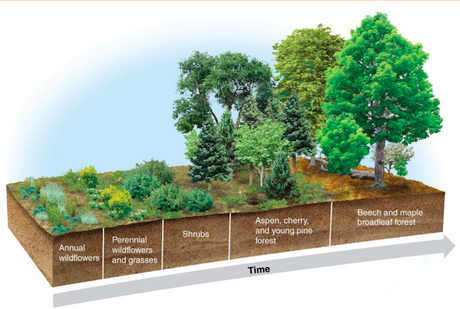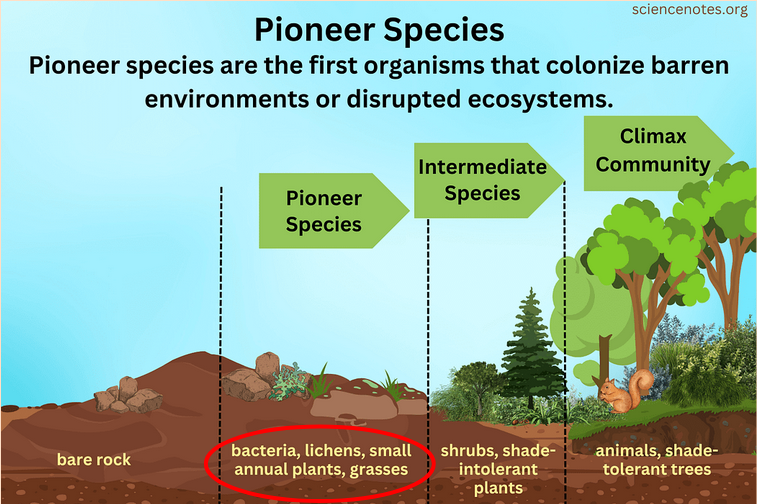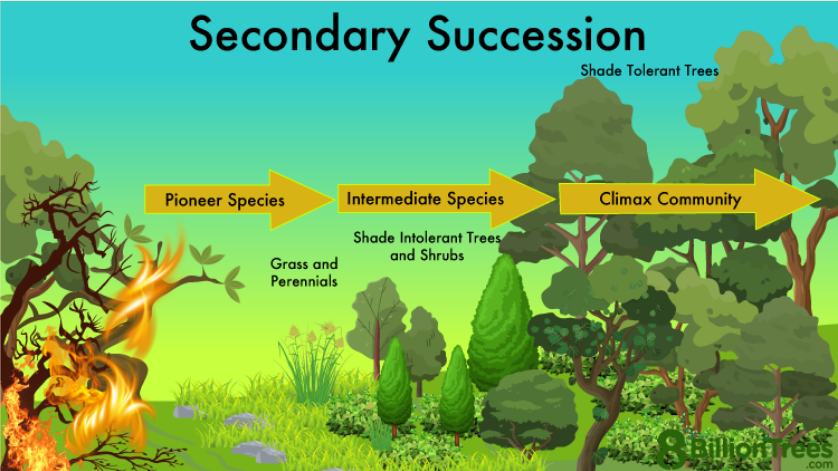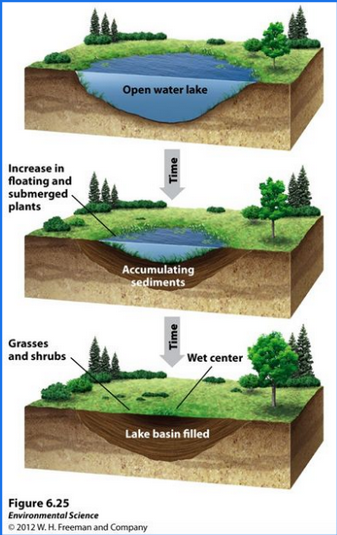2.7: Ecological succession
1/5
There's no tags or description
Looks like no tags are added yet.
Name | Mastery | Learn | Test | Matching | Spaced |
|---|
No study sessions yet.
6 Terms
Ecological succession
The predictable replacement of one group of species by another group of species over time.
Primary succession
Ecological succession occurring on surfaces that are initially devoid of soil.

Pioneer species
first species to locate to the area
Typically have wide range of tolerance
Lichens, algae, moss
Break down rock
Begin soil formation

Climax community
the final, stable community
Over time, a series of distinct communities develops.
Oaks, hickories
Secondary succession
The succession of plant life that occurs in areas that have been disturbed but have not lost their soil.

Succession in aquatic ecosystems, such as lakes
Over a time span of hundreds to thousands of years, lakes are filled with sediments and slowly become terrestrial habitats.
